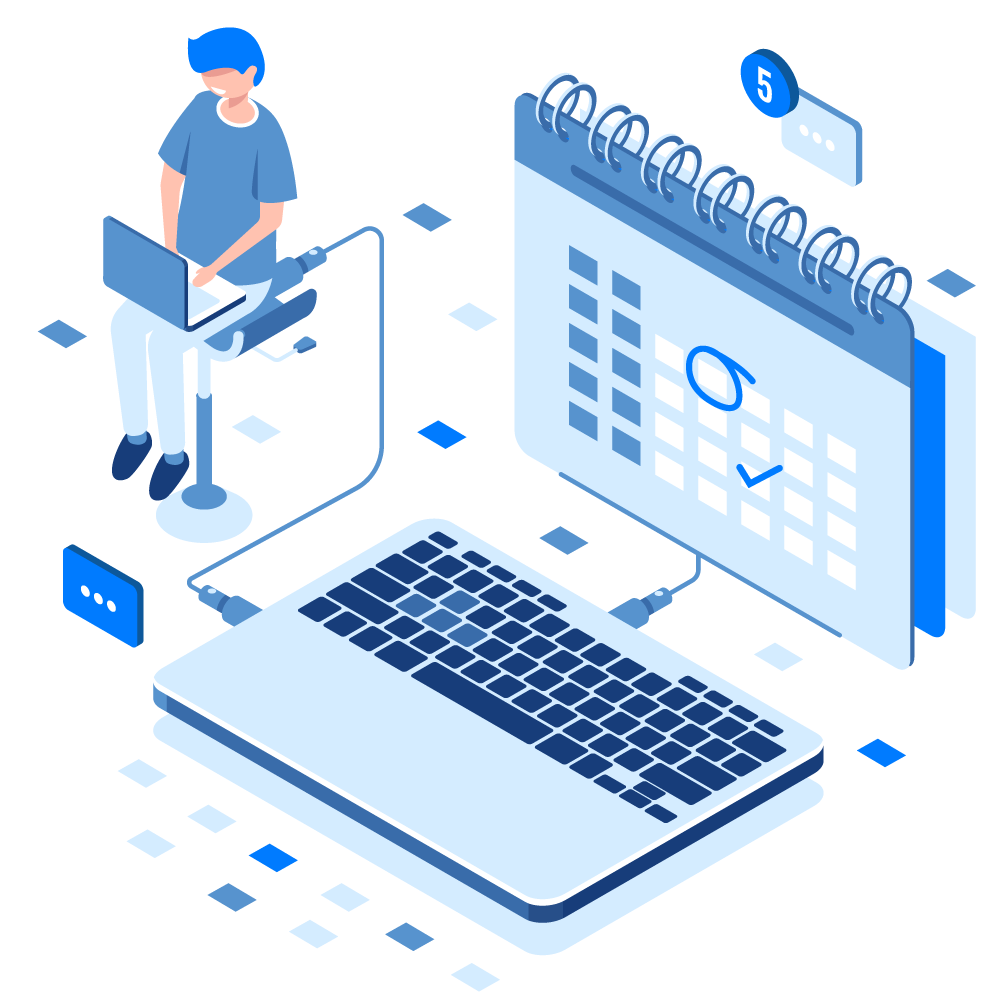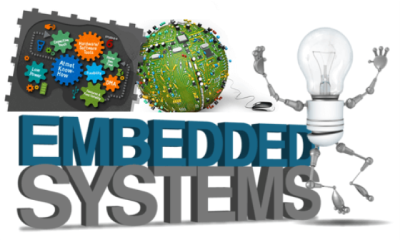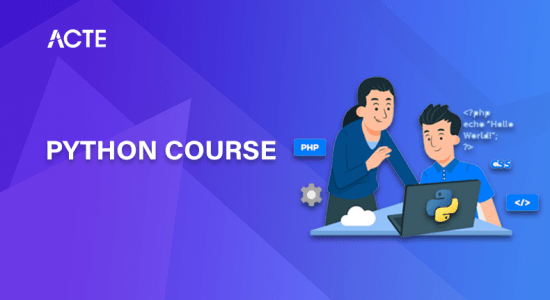Overview of Printed Circuit Board
Printed Circuit Board design training provides a comprehensive understanding of the principles and techniques involved in designing electronic circuits on printed circuit boards. The training covers topics such as schematic creation, component selection and placement, PCB layout and routing, PCB Design Fundamentals, signal integrity, and design for manufacturability. Students gain practical experience using industry-standard software and tools to design and optimize PCBs. This training equips individuals for careers in diverse industries, including consumer electronics, automotive, aerospace, telecommunications, and medical devices, where electronic systems are crucial. PCB training provides individuals with the knowledge and skills to design, fabricate, and assemble electronic circuits using PCB technology.
Additional Info
The Advantages of PCB Design Training
- Enhanced Knowledge and Skills: PCB design training equips individuals with a deep understanding of design principles, techniques, and industry best practices.
- Increased Job Opportunities: PCB designers are in high demand across industries such as consumer electronics, automotive, aerospace, telecommunications, and medical devices, providing diverse career prospects.
- Design Efficiency: Training helps individuals optimize their design processes, resulting in more efficient and reliable electronic circuits.
- Software Proficiency: Printed Circuit Board design courses teach the effective use of industry-standard software tools, allowing designers to create complex layouts and implement advanced features.
- Signal Integrity: Training covers the principles of signal integrity, ensuring proper routing and minimizing noise, interference, and signal degradation.
- Design for Manufacturability: PCB design training emphasizes guidelines and techniques for efficient manufacturing, reducing production costs and ensuring high-quality outputs.
- Compliance with Industry Standards: Training ensures familiarity with industry standards and regulations, enabling designers to create compliant and reliable PCBs.
- Problem-Solving Skills: PCB design training enhances problem-solving abilities, enabling designers to tackle complex challenges and overcome design constraints.
- Hands-on Experience: Training often includes practical assignments and projects, providing hands-on experience in designing and implementing PCB layouts.
- Professional Networking: PCB design training offers opportunities to connect with industry professionals, potential employers, and fellow designers, expanding professional networks and fostering career growth.
The Future Scopes of PCB Design Course
The field of PCB (Printed Circuit Board) design is constantly evolving with advancements in technology. A comprehensive training course in PCB design can give people the knowledge and abilities they need to be successful in this field. Here are some future scopes and significant points to consider in a PCB design training course:
- Miniaturization: The trend toward smaller and more compact electronic devices continues to grow. PCB designers will need to understand techniques for designing miniaturized PCBs with high component density and efficient routing.
- High-Speed Design: With the increasing demand for faster and more efficient electronic systems, high-speed PCB design is becoming crucial. Training courses should cover topics like impedance matching, signal integrity, and EMI/EMC considerations to ensure reliable operation at high frequencies.
- Flexible and Rigid-Flex PCBs: Due to their versatility in terms of form factors, flexible and rigid-flex PCBs are growing in popularity. Future training courses should include modules on designing flexible and rigid-flex PCBs, considering materials, bending areas, and electrical connections.
- Power Electronics: Power electronics play a vital role in renewable energy systems, electric vehicles, and other energy-efficient applications. PCB designers will need to understand power distribution, thermal management, and component selection for high-power applications.
- IoT (Internet of Things): The proliferation of IoT devices requires PCB designers to have a strong foundation in wireless communication protocols, low-power design, and sensor integration. Courses should cover concepts like Bluetooth, Wi-Fi, Zigbee, and protocols such as MQTT and CoAP.
- Design for Manufacturability (DFM): PCB designers should be well-versed in DFM principles to ensure cost-effective production and smooth manufacturing processes. Training courses should cover topics such as panelization, component placement, solder mask design, and design rule checking (DRC).
- Collaborative Design: PCB design often involves collaboration among multiple team members. Courses should emphasize collaboration tools, version control systems, and effective communication practices to enhance teamwork and streamline the design process.
- Emerging Technologies: PCB designers should stay updated with emerging technologies like 5G, artificial intelligence, machine learning, and augmented reality. Training courses should introduce these concepts and explore their impact on PCB design.
- Environmental Sustainability: As sustainability becomes a priority, PCB designers should be aware of environmentally friendly design practices. This includes using recyclable materials, reducing energy consumption, and considering end-of-life disposal options.
- Design Verification and Testing: Comprehensive training courses should cover design verification techniques, simulation tools, and testing methodologies to ensure functional and reliable PCB designs. This includes concepts like design for testability (DFT) and reliability analysis.
- Soft Skills: In addition to technical skills, PCB designers should possess effective communication, problem-solving, and project management skills. Training courses should incorporate modules on these soft skills to enhance overall professional competency.
The Roles and Responsibilities of PCB Design
The role of a PCB (Printed Circuit Board) designer is crucial in the development of electronic systems. PCB designers are responsible for creating the physical layout and design of the PCB, ensuring its functionality, reliability, and manufacturability. Here are some significant roles and responsibilities of a PCB designer:
- Designing the PCB Layout: PCB designers are responsible for creating the physical layout of the PCB, including component placement, routing of traces, and defining the board's dimensions and layers. They use specialized software tools to design and optimize the layout based on the system requirements and design constraints.
- Component Selection and Footprint Creation: PCB designers work closely with electrical engineers and component vendors to select the appropriate electronic components for the design. They create or choose component footprints (land patterns) that match the physical dimensions and electrical requirements of the components.
- Routing and Signal Integrity: PCB designers route the interconnections (traces) between components to establish electrical connections. They ensure proper trace widths, impedance matching, and signal integrity to minimize noise, crosstalk, and electromagnetic interference (EMI). High-speed designs require careful consideration of transmission line effects and controlled impedance routing.
- Design for Manufacturability (DFM): PCB designers must consider DFM principles to ensure that the PCB design can be manufactured efficiently and reliably. This includes adhering to manufacturing guidelines, panelization, and optimization for efficient solder paste stencil creation, assembly, and testing processes.
- Design for Testability (DFT): PCB designers should incorporate DFT principles to facilitate testing and debugging of the manufactured PCBs. This involves adding test points, access points for probes, and design features that enable efficient electrical testing and fault diagnosis during production and maintenance.
- Collaboration and Communication: PCB designers often work as part of a multidisciplinary team, including electrical engineers, mechanical engineers, and manufacturing personnel. Effective collaboration and communication skills are essential for understanding design requirements, resolving conflicts, and incorporating feedback from different stakeholders.
- Documentation and Design Files: PCB designers are responsible for generating accurate and comprehensive design documentation, including schematics, layout files, assembly drawings, and fabrication drawings. These documents serve as references for manufacturing, assembly, and troubleshooting purposes.
- Design Verification and Simulation: PCB designers should perform design verification and simulation to ensure the functionality and performance of the PCB design. This may involve running simulations for signal integrity, power integrity, thermal analysis, and other parameters to identify and resolve potential issues before fabrication.
- Keep up with industry trends and ongoing learning: PCB designers must stay updated with the latest industry trends, advancements in PCB technologies, and emerging standards. They should continuously enhance their knowledge and skills through self-learning, attending technical conferences, and participating in professional development activities.
- Quality Control and Troubleshooting: PCB designers may be involved in quality control activities, including reviewing prototypes and manufactured PCBs for defects, troubleshooting design-related issues, and collaborating with manufacturing teams to resolve any manufacturing or assembly challenges.
The Prerequisites for PCB Design Training
To get the most out of a PCB design training course, it is beneficial to have some prerequisites and foundational knowledge. Here are some prerequisites that can enhance your learning experience in PCB design training:
- Basic Electronics Knowledge: Familiarity with basic electronic concepts such as voltage, current, resistance, capacitance, and inductance is essential. Understanding electronic components, their symbols, and how they function in circuits will provide a solid foundation for PCB design.
- Circuit Analysis: Knowledge of circuit analysis techniques, including Ohm's law, Kirchhoff's laws, and basic circuit analysis methods, will help you understand the behavior of electrical circuits. This understanding is crucial when designing PCB layouts and routing traces.
- Schematic Capture: It is beneficial to have some experience with schematic capture software. This will allow you to create and understand circuit schematics, which are the basis for PCB design. Familiarity with symbols, connections, and netlist generation will ease your transition into PCB layout design.
- PCB Design Software: Prior exposure to PCB design software tools such as Altium Designer, Eagle, KiCad, or OrCAD can be helpful. Familiarity with the software interface, basic features, and functions will enable you to focus more on advanced aspects of PCB design during the training.
- Computer-Aided Design (CAD): Understanding basic CAD principles and tools will be advantageous in PCB design. Knowledge of 2D and 3D modeling, drafting techniques, and the ability to work with layers and dimensions will aid in creating accurate PCB layouts.
- Knowledge of Manufacturing Processes: Having a general understanding of PCB manufacturing processes will help you design boards that are manufacturable and optimized for the production process. Knowing about PCB fabrication techniques, component assembly, soldering methods, and surface finishes will allow you to make informed design decisions.
- Basic Knowledge of EMI/EMC: Understanding the fundamentals of electromagnetic interference (EMI) and electromagnetic compatibility (EMC) will help you design PCBs that comply with electromagnetic regulations and minimize noise issues. Knowledge of shielding techniques, grounding principles, and signal integrity concepts is valuable.
- Mathematics and Physics: A basic understanding of mathematics and physics is essential for calculations and analysis involved in PCB design. Concepts like algebra, trigonometry, calculus, and physics principles related to electricity and magnetism will be beneficial.
The Tools Used in the PCB Design Training Program:
- EDA Software:EDA (Electronic Design Automation) software tools are at the core of PCB design training programs. These tools provide a comprehensive suite of features for schematic capture, PCB layout, and design analysis. Some popular EDA software tools used in PCB design training programs include Altium Designer, Cadence Allegro, Mentor Graphics PADS, KiCad, Eagle, and OrCAD. These tools are also used in VLSI Training.
- Simulation Tools: Simulation tools play a crucial role in PCB design by allowing designers to analyze the electrical behavior of circuits before physical implementation. These tools enable validation of design choices, optimization of performance, and identification of potential issues. Commonly used simulation tools in PCB design training programs include LTspice, PSpice, SIMULIA (formerly known as CST Studio Suite), and Keysight ADS (Advanced Design System).
- PCB Layout Tools: PCB layout tools are specifically designed for creating and optimizing PCB layouts. They provide features for component placement, routing traces, and defining board parameters. PCB designers learn to work with tools such as Altium Designer, Cadence Allegro PCB Editor, Mentor Graphics PADS Layout, KiCad PCBNew, and Eagle PCB Layout Editor to develop efficient and manufacturable PCB designs.
- Gerber Editing Software: Gerber files are the industry-standard format for PCB manufacturing. Gerber editing software allows designers to view, edit, and verify Gerber files, ensuring they conform to manufacturing requirements. These tools are used to check the accuracy and compatibility of the design with the manufacturing process. Popular Gerber editing software tools used in PCB design training programs include GC-Prevue, GerbView, and CAM350.
- Mechanical Design Tools: In some PCB design training programs, mechanical design tools are included to facilitate collaboration between PCB designers and mechanical engineers. These tools enable the integration of PCBs into mechanical enclosures, ensuring proper fit and clearance. SolidWorks, AutoCAD, Fusion 360, and Siemens NX are examples of mechanical design tools used in PCB design training programs.
- PCB Design Review and Collaboration Tools: Collaboration tools are essential for PCB designers to work effectively in teams and receive feedback from stakeholders. These tools facilitate design reviews, version control, and efficient communication among team members. Various collaboration tools are utilized in PCB design training programs to enhance teamwork and streamline the design process.
Show More





























